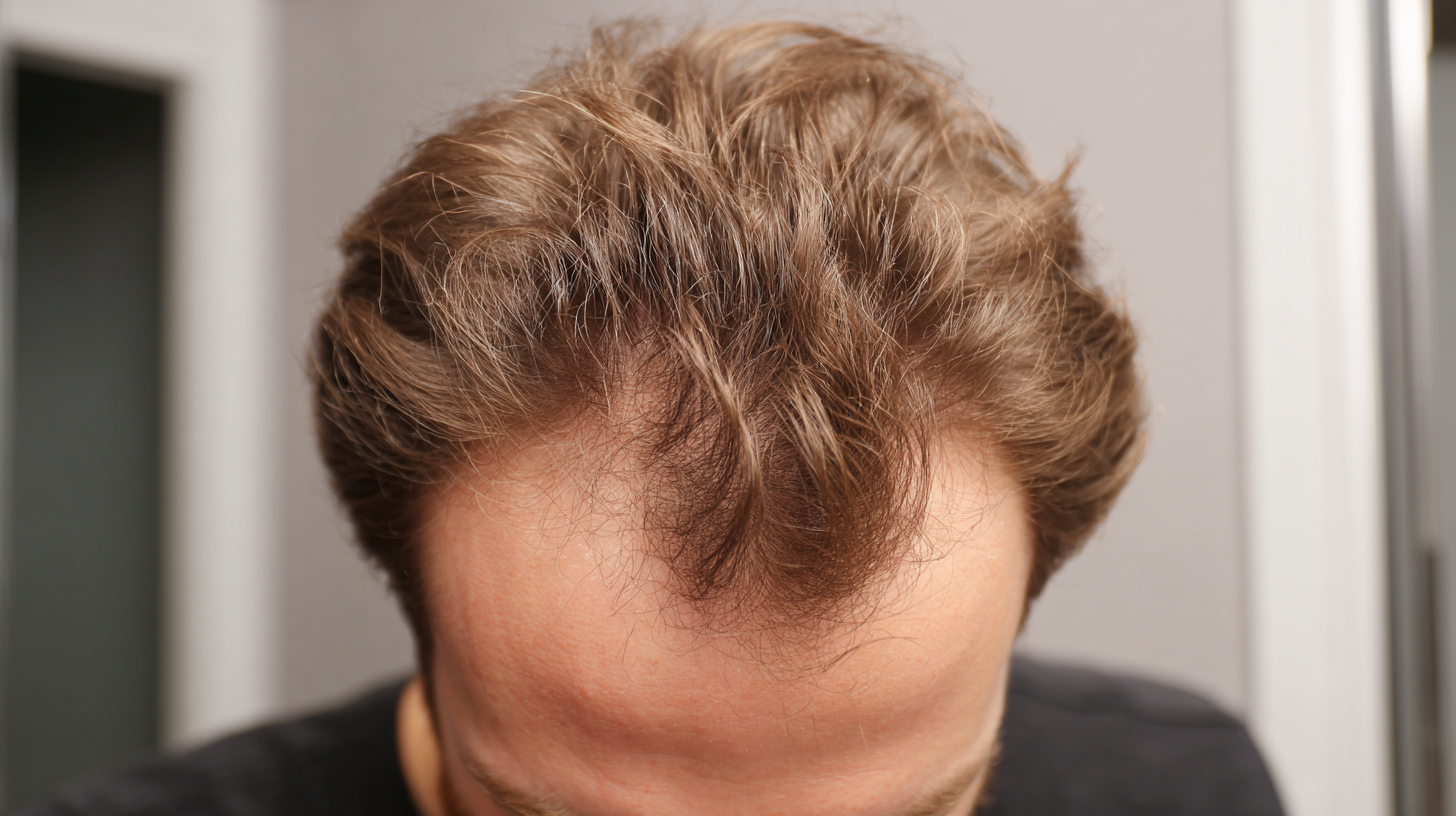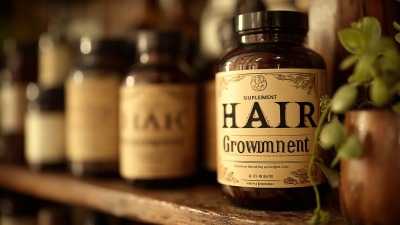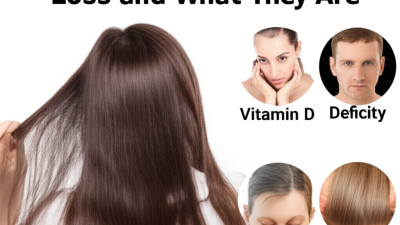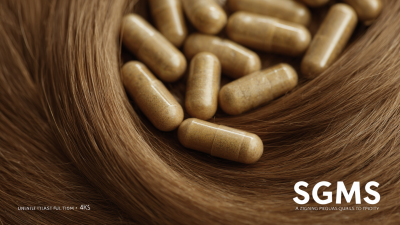
-
Home
-
Products
-
About US
-
FAQ
-
News
-
Tips
-
Contact Us
Leave Your Message
- Phone
- E-mail
- WhatsApp
- WA Business



In recent years, the increasing prevalence of hair loss has propelled a surge in the demand for effective solutions, particularly within the realm of hair vitamins. According to a report by the American Academy of Dermatology, nearly 80 million Americans experience hair loss, making it a growing concern for both men and women. As a result, the hair care industry has seen a boom in the development of specialized hair vitamins targeting hair loss, with a projected market value surpassing $200 billion by 2025. These vitamins often include vital nutrients such as biotin, vitamin D, and iron, which are essential for promoting healthy hair growth and preventing further loss.

As consumers navigate this expanding market, understanding how to choose the right hair vitamins for hair loss becomes crucial. Various studies indicate that deficiencies in specific vitamins and minerals can lead to thinning hair and compromised scalp health. Furthermore, a survey conducted by the International Society of Hair Restoration Surgery revealed that 66% of women and 59% of men consider hair restoration solutions, underscoring the importance of selecting the right products. With an array of options available now more than ever, this guide will provide insight into the most effective hair vitamins for hair loss in 2025, empowering individuals to make informed decisions for their hair health.
Nutritional deficiencies are increasingly recognized as significant contributors to hair loss. According to a study published in the *Journal of Clinical and Aesthetic Dermatology*, nearly 38% of women with hair loss exhibited deficiencies in key nutrients such as iron, zinc, and biotin. These vitamins and minerals play crucial roles in hair follicle health, promoting growth and preventing premature shedding. Iron, for instance, helps maintain healthy circulation and oxygenation of hair follicles, while zinc is vital for tissue repair and growth of hair cells.
Additionally, the American Academy of Dermatology highlights that inadequate protein intake can also lead to hair thinning. Hair is predominantly made of keratin, a type of protein, and without sufficient dietary protein, the body may struggle to produce the hair strands needed for a full, thick mane. A comprehensive nutritional approach, focusing on balanced micronutrients and adequate protein, can significantly impact hair health. For those looking to combat hair loss in 2025, selecting hair vitamins enriched with these essential nutrients can be a proactive strategy in supporting hair restoration.
| Nutritional Component | Connection to Hair Loss | Recommended Dosage (Daily) | Food Sources |
|---|---|---|---|
| Biotin (Vitamin B7) | Essential for keratin production, deficiency may lead to hair thinning. | 30 mcg | Eggs, nuts, legumes |
| Vitamin D | Low levels linked to alopecia and hair loss. | 600 IU | Fatty fish, fortified dairy, sunlight |
| Iron | Deficiency can cause hair shedding and anemia. | 18 mg | Red meat, spinach, lentils |
| Zinc | Crucial for hair tissue growth and repair. | 11 mg | Shellfish, pumpkin seeds, beans |
| Omega-3 Fatty Acids | Promote healthy scalp and hair hydration. | 1.6 g | Flaxseeds, walnuts, fish |
When selecting hair vitamins for hair loss in 2025, it's crucial to focus on key ingredients that promote optimal growth. Several studies indicate that deficiencies in specific vitamins and minerals can significantly impact hair health. For instance, a report from the Journal of Cosmetic Dermatology highlighted that biotin supplementation can improve hair growth in individuals with thinning hair. Including biotin in your hair vitamin regimen ensures you are addressing one of the most common deficiencies linked to hair loss.
In addition to biotin, other important ingredients to consider are vitamins D and E, along with zinc and iron. A study published in the Journal of Investigative Dermatology found that vitamin D plays a vital role in creating new hair follicles, while vitamin E helps reduce oxidative stress, which can lead to hair loss. Furthermore, adequate zinc and iron levels are essential for maintaining proper hair structure and preventing shedding, as documented by the International Journal of Trichology.
Tips: Always check the ingredient list for quality and concentration of active components. Look for clinical evidence or studies backing the effectiveness of the vitamins you choose. Additionally, consider pairing your vitamins with a balanced diet rich in antioxidants and essential fatty acids to enhance absorption and results.
In 2025, the landscape of hair vitamins and supplements for combating hair loss is increasingly informed by scientific research. The rise in premature graying, particularly among younger adults, underscores the importance of understanding how specific ingredients and formulations can effectively target this issue. Reports indicate that over 70% of the population is experiencing an early onset of white hair, making it essential to choose hair supplements based on credible scientific evidence rather than anecdotal claims.
Recent empirical studies have shed light on the effectiveness of various formulations, highlighting the significance of factors such as bioavailability and ingredient synergy. As consumers become more discerning, they are likely to prioritize products that come with proven efficacy in addressing hair loss and promoting hair health. Research-driven assessments are now at the forefront, guiding individuals toward informed decisions about which hair vitamins to incorporate into their daily routines, ultimately aiming for not just cosmetic improvement, but also for long-term hair vitality.
When it comes to choosing hair vitamins for hair loss in 2025, the format you choose can significantly impact your experience and results. The most common forms available include pills, gummies, and powders. Each has its own set of advantages and drawbacks. Pills are often packed with high concentrations of essential nutrients but may be harder to swallow for some. Gummies, on the other hand, offer a tasty alternative that can appeal to those who struggle with traditional pills, although they usually contain added sugars. Powders can be mixed into smoothies or water, providing a versatile option, but the taste and texture may vary widely depending on the brand.
**Tips:** When choosing between these forms, consider your lifestyle and preferences. If you’re always on the go, gummies or powders that can be mixed into your morning routine might be ideal. For those who prefer simplicity and quick absorption, pills may be the best option. Always read the ingredient lists and check for clinically proven nutrients like biotin or folic acid that support hair health.
Ultimately, experimenting with different formats can help you find the one that you enjoy taking consistently, as consistency is key to seeing improvements in hair health. Don't hesitate to try a combination of formats if that suits your needs best.
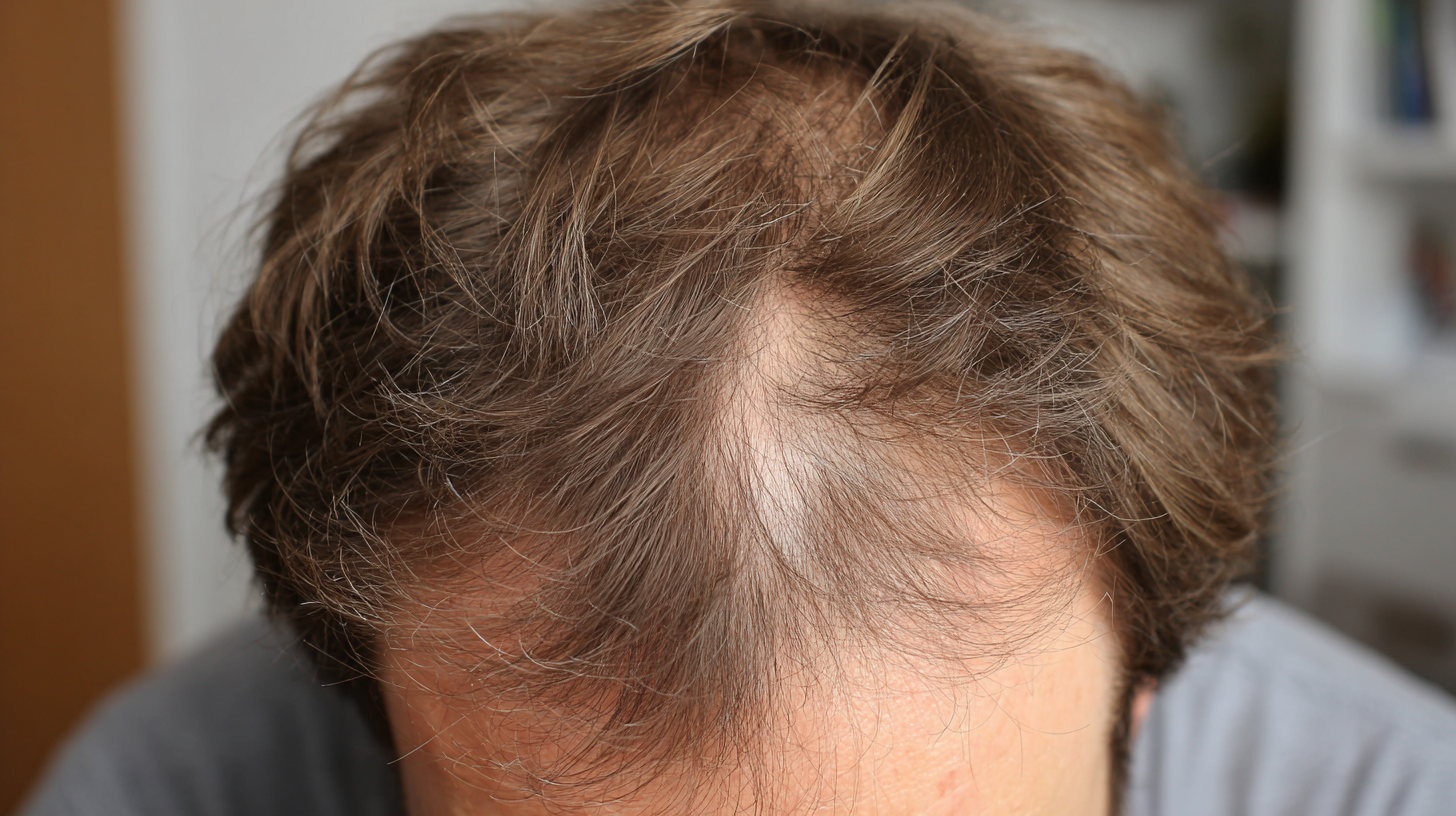
When integrating hair vitamins into your daily routine to combat hair loss in 2025, it’s essential to understand the right timing and dosage for optimal results. According to a 2023 report by the American Academy of Dermatology, it takes approximately three to six months of consistent vitamin intake to notice significant changes in hair health. Therefore, setting a daily reminder can help you stay on track. Try incorporating hair vitamins into your morning routine—perhaps alongside your breakfast—to ensure they become a non-negotiable part of your day.
Additionally, choosing the right formulation is key. A comprehensive study published in the Journal of Nutrition in 2022 revealed that vitamins such as biotin, vitamin D, and folic acid have been linked to improved hair growth and density. Consider selecting a hair vitamin that encompasses a blend of these critical nutrients. Lastly, tracking your progress through monthly check-ins can provide motivation and a clearer understanding of what works best for your hair health. Using a hair diary can help record any changes and align your efforts with the science-backed recommendations for hair restoration.
